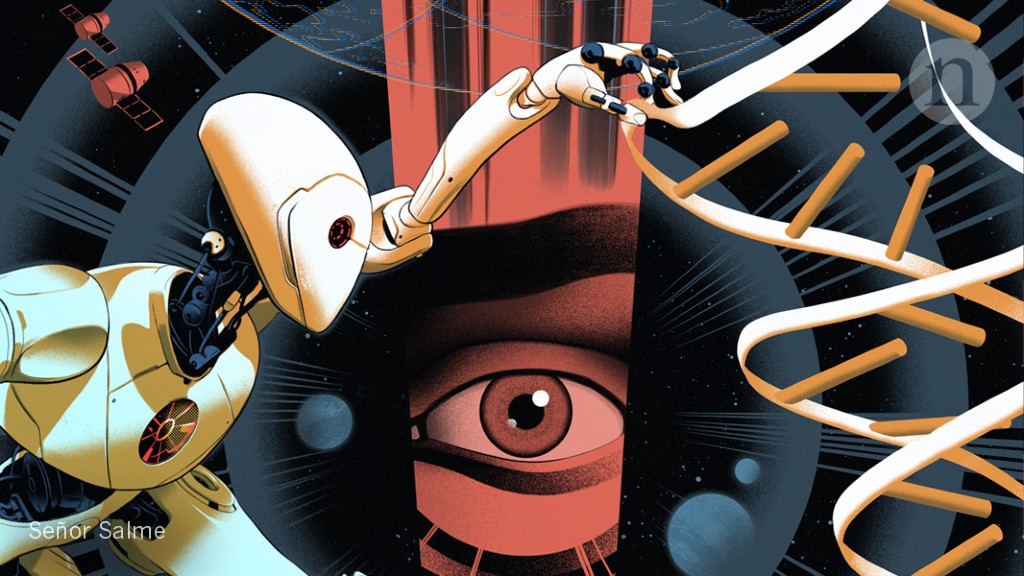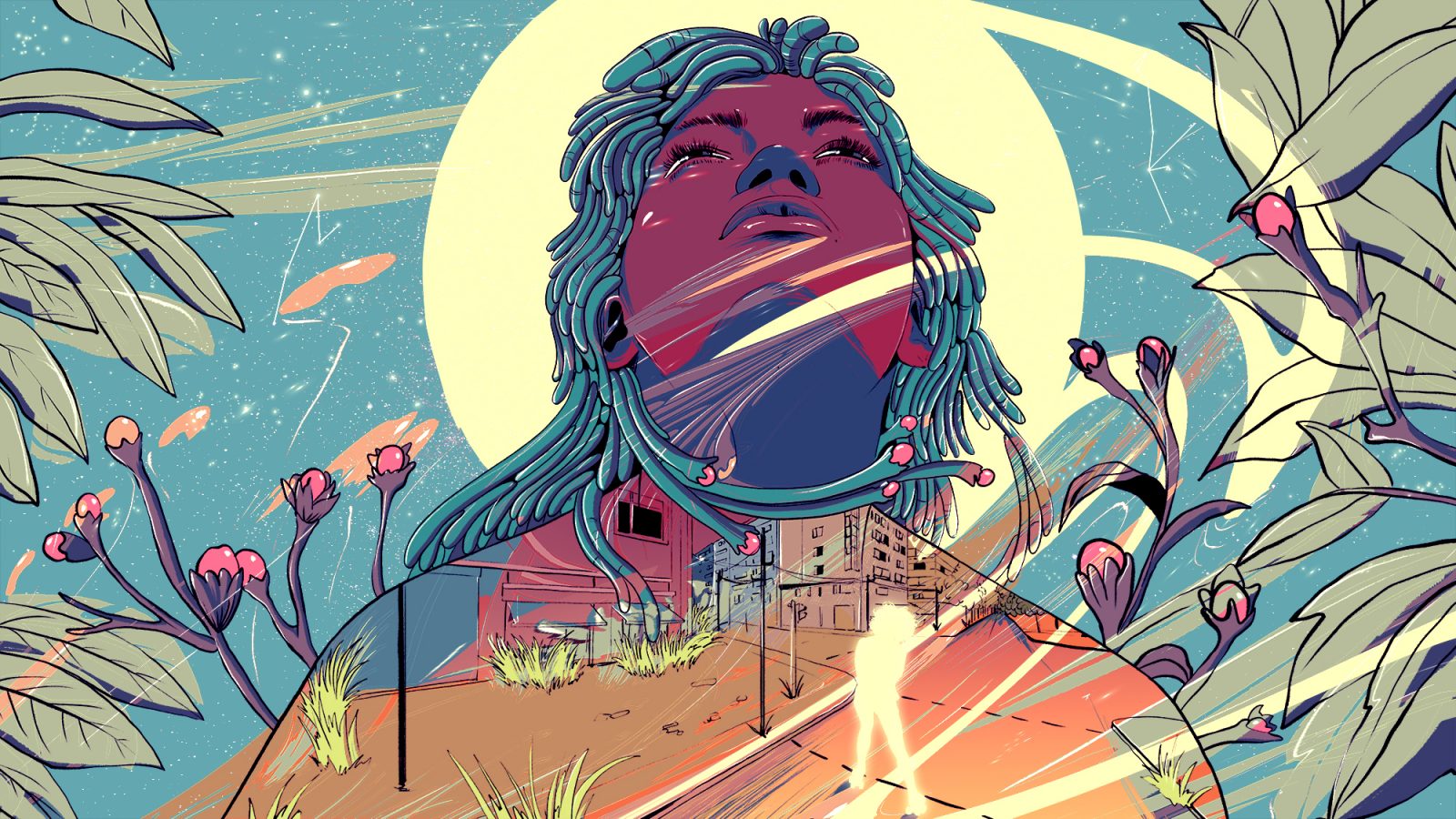The Evolution of Science Fiction: A Journey Through Imagination and Innovation
The genre of science fiction has long fascinated readers with its blend of scientific curiosity and speculative imagination. Rooted in a tradition that marries the known with the unknowable, science fiction offers a canvas where writers explore the potential of humanity and the universe. From the space operas of the mid-20th century to the intricately constructed cyberpunk sagas of the 80s and the socially conscious narratives of today, science fiction has continually evolved to mirror the complexities of the era it depicts.
In the early days of science fiction, often dubbed ‘scientific romances,’ the likes of H.G. Wells and Jules Verne pioneered a form of storytelling that took the Victorian public's fascination with science and progress to its imaginative limits. Verne’s "Twenty Thousand Leagues Under the Sea" and Wells’s "The War of the Worlds" weren’t just sensational tales of adventure and invasion; they were also contemplative reflections on mankind’s relationship with technology and the unknown.
Moving into the golden age of science fiction, between the 1930s and 1950s, we witnessed a boom in the genre's popularity, powered by pulp magazines such as Astounding Stories. Visionaries like Isaac Asimov, Arthur C. Clarke, and Ray Bradbury pushed the boundaries of the genre. Asimov’s "Foundation" series explored the fall of a galactic empire and the mathematical predictability of social trends, while Clarke’s "2001: A Space Odyssey" expanded upon the themes of artificial intelligence and extraterrestrial life.
As the space race captured the public's imagination, science fiction became increasingly concerned with space exploration and the potentialities of human life beyond earth. The visual depiction of these stories in film and television, namely in the "Star Trek" franchise, enshrined the genre within popular culture. It wasn't long before society embarked on a dialogue with science fiction, inspiring generations of scientists, engineers, and astronauts, blurring the line between fiction and reality.
The late 20th century saw a shift in science fiction, with writers exploring inner space as much as outer space. Cyberpunk, a subgenre characterized by its focus on high-tech and low life, emerged from the pens of authors like William Gibson and Bruce Sterling. "Neuromancer" by Gibson, often considered the seminal work of the cyberpunk movement, depicted a future where humans and technology were inextricably linked, predicting the profound impact the internet and cybernetics would have on society.
As we moved into the 21st century, science fiction has continued to evolve. The genre increasingly reflects our contemporary anxieties about climate change, artificial intelligence, and global pandemics, seen in works like Paolo Bacigalupi’s "The Windup Girl" or Emily St. John Mandel’s "Station Eleven." Science fiction has also seen a welcomed diversification in its voices, with writers such as N.K. Jemisin and Ted Chiang offering new perspectives and narratives informed by their unique experiences and cultural backgrounds.
At its heart, science fiction remains a genre grounded in the exploration of what it means to be human in the context of an ever-expanding universe. Its constant evolution is not just a reflection of the authors' imaginations but of society's dreams, fears, and aspirations. As we peer into the future, the tales we weave about robots, alien civilizations, and far-flung galaxies do more than entertain; they help us navigate the uncharted waters of our collective future, offering blueprints for realities yet to come.### The Echoes of Humanity in Tomorrow's Stories
The intersection of science fiction with other literary genres has also significantly broadened its scope and appeal. Contemporary authors seamlessly blend science fiction with elements of mystery, historical fiction, and mainstream literary narratives, producing works that defy easy categorization. This hybridization enriches the genre, allowing for more subtle explorations of character development and thematic complexity within a science fiction framework.
A prime example of this trend is the increasing prominence of climate fiction, or 'cli-fi,' which often overlaps with science fiction. This emergent subgenre critically examines the environmental implications of human activity, predicting dire consequences if current trends persist. Through cli-fi, authors such as Margaret Atwood in her "MaddAddam" trilogy, interrogate the ethics and sustainability of our relationship with the natural world. By blending realistic ecological concerns with speculative elements, these narratives render the future's precariousness in stark relief, urging readers to consider their impact on the planet.
Moreover, the rise of digital publishing and self-publishing has democratized science fiction, giving a platform to voices that may have struggled to find a traditional audience. This accessibility has fostered a proliferation of fresh perspectives and stories, including works from underrepresented groups who bring their distinct experiences to the realm of the imagined. In a genre that inherently looks forward, it is fitting that its storytelling ecosystem embraces innovation and diversity in its modes of distribution as well.
Advances in science and technology daily bring the once unimaginable into the realm of possibility. Speculative fiction – an umbrella term that often includes science fiction – thus plays a crucial role in pre-empting the moral and ethical questions that these advances may pose. When Mary Shelley penned "Frankenstein" in 1818, considered by some to be the first science fiction novel, her story grappled with the idea of creation and the responsibilities that come with it. Today, as we edge closer to realizing artificial intelligence and genetic engineering on a scale Shelley might never have imagined, the questions she raised remain pivotal.
Furthermore, the relationship between science fiction and actual scientific discovery is fascinatingly symbiotic. While science fiction can predict or inspire technological advancement, real-world science also gives science fiction authors a veritable toolbox of concepts to incorporate into their work. Quantum mechanics, multiverse theory, and gene editing are just a few of the scientific fields that have provided fodder for the modern science fiction writer's imagination.
Another shift within the genre is its increasing involvement in social commentary. The science fiction of today often features as a medium to address the issues of gender, race, and politics. Authors like Ann Leckie, in her novel "Ancillary Justice," experiment with the notion of gender by creating a society where gender is insignificant and unmarked by language. In this way, the genre becomes an arena for challenging and deconstructing our own sociocultural norms and prejudices.
However, as much as the genre evolves, some constants anchor science fiction to its historical origins. The archetype of the spacefaring explorer, the concept of the otherworldly, and the quest for knowledge are motifs that persist and are continually reimagined in current literature. Rooted in these archetypes, science fiction is unrestrained in its capacity to mold them into new narratives that resonate with contemporary audiences.
Reflecting on the current trajectory of science fiction, it's evident that its importance extends beyond amusement. The genre serves as a lens through which we examine our present and anticipate our future, addressing not only the potential of technology but the depths of the human condition.
As we continue to forge our path through the 21st century, science fiction will undoubtedly keep evolving, mirroring the era's scientific achievements, cultural shifts, and global developments. It proves itself a perpetual act of imagination that not only adapts to change but often runs ahead of it, beckoning us to follow into the unknown. The stories we've yet to tell will undoubtedly help us to navigate the rapid pace of change, probe the ethical quandaries we're bound to face, and dream up the worlds we might one day inhabit. Science fiction, thus, is not just about exploring the cosmos but intimately about exploring ourselves and the myriad possible futures we could shape or inadvertently summon.











Comments